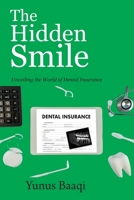Seeing Reason: Image and Language in Learning to Think
Select Format
Select Condition 
Book Overview
Seeing Reason is an interdisciplinary study of a central topic in cognitive science: how does the mind respond to different kinds of representation of the same information especially when learning, reasoning, and communicating. It uses philosophical, logical, linguistic, psychological, and educational methods to explore this topic, reporting theories, observations, and arguments developed during several years research. Though the focus is on fundamental cognitive theories of human capacities, the issues are closely related to intensely practical issues about the teaching and learning of reasoning and communication skills. Along the way it examines why the human mind has so evolved, the relationship between private language and public thought, and integrates cognitive and social accounts of communication.
Format:Paperback
Language:English
ISBN:0198507747
ISBN13:9780198507741
Release Date:October 2002
Publisher:OUP Oxford
Length:308 Pages
Weight:1.20 lbs.
Dimensions:0.7" x 6.1" x 9.2"
More by Yunus Baaqi
Customer Reviews
3 customer ratings | 3 reviews
There are currently no reviews. Be the first to review this work.











































